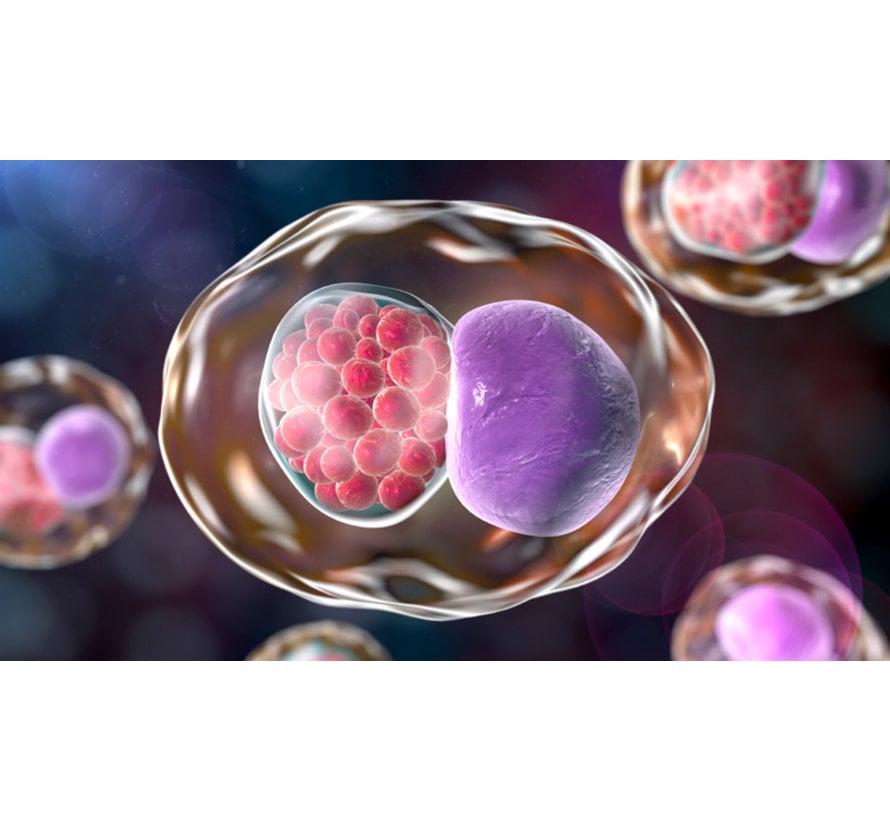Chlamydia trachomatis IgG Antibodies blood test
Chlamydia trachomatis IgG (EIA) from serum for Women to measure whether a passed infection affects becoming pregnant.
Not suitable as an STD test to see if you are currently infected, PCR tests are better suited for this.
Symptoms ofChlamydia infection in women include pain or burning during urination and blood loss after sexual intercourse, and blood loss during contraception. Acute Chlamydia infections are relatively easy to detect using sensitive laboratory techniques, such as PCR from the cervix or urine from a man, and can be adequately treated with medication. However, in approximately 70% of infected women, the infection progresses without symptoms, leaving it undetected and untreated.
In these cases, the antibodies can be measured to see if there is a run-through infection.
If couples can't get pregnant this infection can be the cause.
A positive result for Chlamydia trachomatis IgG antibodies indicates a recent or acquired infection
If there is clinical suspicion of acute infection, it is recommended that a smear of urethra and/or cervix be submitted for Chlamydia trachomatis PCR testing.
This blood test is used to determine whether there are antibodies against chlamydia. If these antibodies are found, then you have probably had an infection with chlamydia in the past. Chlamydia is a sexually transmitted disease (STD) that can damage the fallopian tubes and cause adhesions in the abdomen.
Chlamydia is a bacterium that you can get and transmit when you have sex with someone. In the Netherlands, it is the most common STD. You can carry the bacteria around for a long time without knowing it. Only 10-30% of the women will get symptoms because of it. Yet the bacteria can cause unnoticed damage. The bacteria can reside in the cervix, but can also spread to the uterus, fallopian tubes, and abdominal cavity. This happens in 10-20% of women who become infected with chlamydia. If the fallopian tubes are infected, damage can occur. The fallopian tube can become occluded and adhesions can develop.
Negative result
If you have a negative result, then no chlamydia antibodies have been found in your blood. It is then very likely that you have not had a chlamydia infection in the past. The chance of damage to the fallopian tubes through an infection is not great. For the time being, follow-up testing is not necessary. Should the pregnancy not occur for a longer period of time, then further testing can still be done at a later date.
Positive result
If you have a positive result, antibodies have been found in your blood. You have probably had an infection with chlamydia in the past. Follow-up testing must show whether the infection is still active. This can be tested with urine or with a smear of the cervix. You may have damage to the fallopian tubes. Further examination, such as an ultrasound scan or keyhole surgery, may be necessary.
Active infection
If you have an active infection, you and your partner will need treatment with antibiotics. This is necessary to prevent any further damage. Before you get an ultrasound or keyhole surgery, the infection must be treated. If there are any chlamydia bacteria in your cervix, they may otherwise end up in your fallopian tubes during this examination and cause an infection as well.
It is also possible to request a post test for Chlamydia trachomatis-IgA (EIA) serum from existing blood for €35,- to measure a recent infection.





